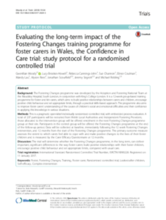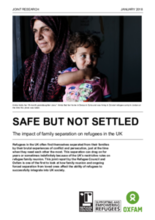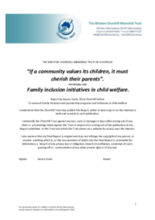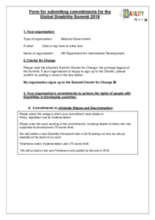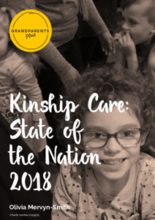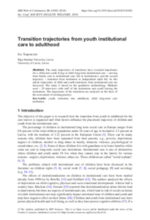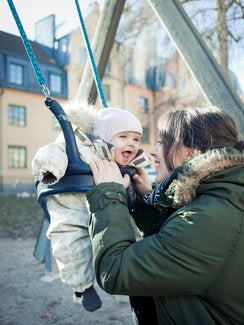

Displaying 1061 - 1070 of 1585
This randomised controlled trial will evaluate the Fostering Changes programme in Wales, a 12-week group-based training programme for foster and kin carers.
The aim of this article is to analyse juridification and standardisation as two legal dimensions influencing contemporary child-protection work, and to discuss its implications for practice.
This joint report by the Refugee Council and Oxfam is one of the first to look at how family reunion and ongoing forced separation from loved ones affect the ability of refugees to successfully integrate into UK society.
This Churchill Fellowship has explored family inclusion initiatives in the USA, Canada, Norway and the UK and has found that family inclusion is a pathway to better outcomes for children and young people including restoration and permanency.
This paper provides an overview of the principles of Trauma informed care, describing how service user experiences of adversity and/or trauma relate to the child welfare system in Northern Ireland and outlining international and national policy and practice developments in creating more Trauma informed child welfare systems.
In this form, the UK Department for International Development (DFID) outlines its commitments for the Global Disability Summit 2018, including its new policy position on children and young people with disabilities in institutions.
It is well documented that children placed in out-of-home care in Denmark perform poorly on a wide range of short-term and long-term outcomes compared to other children. This paper describes the core components of an innovative project that will attempt to address some of the major weaknesses of previous interventions and which, if successful, will be rolled out across foster care families nationwide.
The Kinship Care: State of the Nation 2018 survey is the largest survey ever of kinship carers in the UK. As in previous years, it shows that many carers aren't getting the support they need to enable children to thrive.
This article celebrates the positive difference that being around and caring for animals can make for looked after children. It explores the benefits and makes a case for a proactive approach.
In this article trajectories of child and youth transitions from institutional care are discussed.

